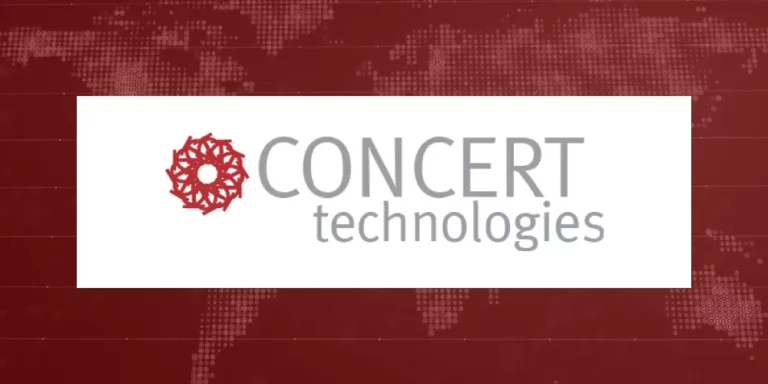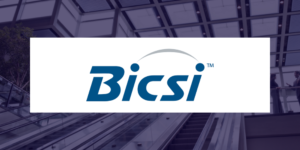If your next technology rollout requires you to deliver IP-connected technology at a consistently high quality, across multiple locations – either nationwide or global – you need to work with a deployment partner that utilizes a technology rollout system. A technology rollout system is a comprehensive, multi-technology, multi-service, multi-site system of methodologies that is designed to meet a wide variety of project requirements for an ever-changing technology infrastructure that needs to be deployed rapidly across many sites.
The most effective technology rollout systems are designed to ‘normalize’ mass-scale rollouts so that 80-85% of every project is delivered in in very similar fashion, with the remaining component reflecting the customers’ specific requirements for the specified technology solution, company culture, as well as preferences for its delivery in company locations.
By partnering with a qualified technology rollout company (TRC) that utilizes a proven technology rollout system to manage deployments, customers can lower your project time and cost as well as increase customer satisfaction. Some of the many benefits of using a technology rollout system include the following:
Minimize Your Project Cost and Implementation Timeframe
A TRC who uses a technology rollout system will employ a skilled project management practitioner to develop a realistic project schedule and translate the project statement of work (SOW) into a concise work order packet for use by local field techs. This is used by the TRC to search their database of vetted nationwide field technicians for proximity to customer locations, as well as the skill-set needed to deliver the deployment with minimal assistance.
Wherever possible, the TRC reduces redundancy by ensuring that field technicians have the skills and knowledge to deliver the whole installation rather than only parts. Having a proven system of methodologies affords a ‘rapid deployment timeframe’ approach. This approach means that multiple services are delivered in fewer truck rolls, minimizing project cost and implementation timelines.
Reduce Customer Project Management Responsibilities
The TRC Project Manager (PM) assumes all responsibility for the day-to-day management of your rollout project and acts as the customer’s single point of contract. The PM also manages a team of project facilitators/coordinators. Project Facilitators perform a number of important roles:
- Management and liaison with end-user locations
- Coordination and management of the vendor supply-chain and logistics
- First-line technical support
- Direct communication with, and quality assurance of, field technicians
This last task includes rating the performance of individual field techs at each site. This is important, because it ensures that the TRC database is able to use past performance to select the most appropriate field techs for a given job.
Because the technology rollout system maintains a high level (typically 80-85%) of process commonality across diverse projects, the TRC is able to inject additional project facilitators into customer rollouts ‘on demand’, with little or no time required for these resources to familiarize themselves with project specifics. This allows the internal management resources of the TRC to scale to meet the requirements of customer projects, regardless of project size, and makes it possible to significantly reduce customer involvement associated with the deployment of sites.
Mitigate Project Risk
With a technology rollout system of methodologies that normalizes mass-scale rollouts so that every site is delivered rapidly and accurately, project risk is mitigated through the use of proven, repeatable processes.
Any technology rollout company that does not use such a model has to develop their processes from scratch for each new project. That means that they are ‘learning as they go’ which in turn, means more mistakes, and increases the need for customer involvement throughout the rollout project.
The Bottom Line
If you have a project that requires consistent deployment of a technology solution across many locations – whether nationwide or globally – before you commence, ask your technology rollout company these questions about the technology rollout system they use:
- Can you walk me through your technology rollout system of methodologies, e.g. how was it developed and what does it do?
- Can you show me how your model scales to meet volume both within a given project and across projects from multiple customers??
- Can you show me what functions your people, processes, and system/application fulfill to deliver a customer rollout across multiple locations?
How This Information Will Benefit You:
- Minimize project costs and time by understanding how a Technology Rollout System is applied on a nationwide or global level and how it can affect your budget, service, and selection process.
- Establish an accurate view of project expectations including costs and time by learning how to categorize your rollout.
- Decide the right system for your rollout by understanding how to identify and evaluate a technology rollout company’s system.
Implementing nationwide and global technology rollouts requires the in-depth knowledge and expertise of an experienced technology rollout company. Today, technology rollout companies commonly provide the same elevator sales pitch that touts a single point of contact, field resources across multiple locations, and a Web-based software application to manage projects.
However, in successful rapid nationwide and global technology rollouts, there is a distinct difference between these one-dimensional “systems” and companies that employ a defined Technology Rollout System that is capable of meeting aggressive goals.
Assessing the capabilities of a technology rollout company is vital before awarding a nationwide or global project. Before making a decision on which technology rollout company to use for your critical project implementation needs, first find if they are providing more than just ‘general contracting’ services. Your technology rollout partner should offer end-to-end solutions, no matter the scope of the project.





